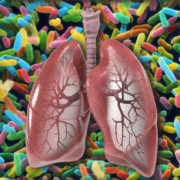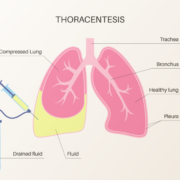Why My Grandmother Died
You may be wondering why the TAP-IT study created that stop-in-my-tracks moment. In the mid-1980s, my grandmother Frances was 80 years old and was always my biggest fan. She had congestive heart failure, so doctors tried the needle procedure, which drained close to 20 lbs. of fluid from around her lungs; you can imagine the pressure that caused on her heart. But congestive heart failure is an unforgiving disease—at least it was back then. Without a real treatment other than thoracentesis, there’s no cure.
Months later, the pulmonary effusion happened again, but she refused treatment because the procedure had hurt too much the first time. She died a couple of weeks later. The study prompted my realization that a medication like a diuretic might have prevented a rather difficult death with multiple bedsores.
The fact that there was never a randomized controlled trial to compare the two approaches until 45 years later just absolutely astounds me. At least now there are treatment options for people with the same condition without the same type of complications.
Just to be clear: there was no coming back from advanced congestive heart failure as my grandmother had. Using either procedure would not have cured her—it would have eventually killed her anyway. But the difference was really in her quality of life. She may have lived longer and certainly less painfully using the diuretic, which as I said was available even back then. But there was no research to support it.
What Was the Cause of Death?
There appears to be a lot of misinformation today about cause of death. I’m going to use my grandmother as an example. I mentioned that she had severe pulmonary effusion due to the congestive heart failure. But she also had bedsores. If they had gone septic, resulting in a whole-body infection, what would have been the official cause of death? That’s what we’ll explore next week. Please share your thoughts.
What are you prepared to do today?
Dr. Chet
Reference: Circulation. 2025 Apr 1;151(16):1150–1161









